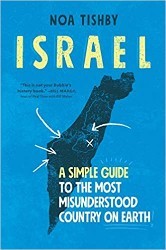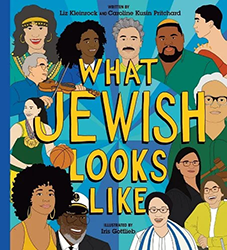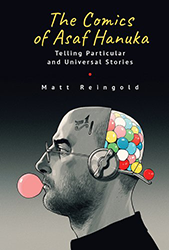Does the title of this book shock you? Does it make you uncomfortable? It should.
In 2020, Emmanuel Acho — a sports analyst, author, and former NFL football player — released a digital series called Uncomfortable Conversations with a Black Man that discussed racism and social injustice. He also published a book that year by the same name. The show has continued, with Acho always tackling tough topics. And who better to talk with about hard things than Israeli activist Noa Tishby?
Their first meeting to discuss the book took place about fifteen months before October 7. Unfortunately, after that, it became all too clear how necessary Uncomfortable Conversations with a Jew was.
The book is divided into three different sections, followed by a conclusion, a transcript of the conversation Acho and Tishby had the week after October 7, and appendices. In each section, there are multiple topics, including ones like “How This Book Happened,” “The Jewish … Race?”, “The Math Ain’t Mathing: Jews, Money, and Power,” “October 8th,” “The Z Word,” and “Be a Mensch: Show Up as an Ally.”
The topic titles are meant to be provocative. This is a book where all pretense is gone: Acho and Tishby go there. Tishby writes, “It’s a no-judgment space to answer the questions you’ve thought about but might have been too nervous to ask. It’s a real space for me to give uncensored answers. Because I don’t believe in ‘safe spaces’; I believe in real spaces. In other words — bring it on.”
The book is set up as a conversation, with questions and answers leading to discussion. Both authors are honest about what they don’t know, assumptions they’ve made and reactions they’ve had, and how the book almost didn’t happen. In the section “Soul Food Shabbat,” they discuss with disarming candor the long history of social justice interactions between the Jewish community and the Black community, as well as changes they’ve seen in the last few years. In another important section, “The New Face of Antisemitism,” Acho and Tishby delve deep into anti-Zionism: its history and its present, the BDS movement, and antisemitism from the left, among other things.
This isn’t just a book for non-Jews; it’s for everyone. Jewish readers will identify with much of what Tishby discusses, and will likely find some comfort in knowing they aren’t alone. The book also provides readers an opportunity to learn basic information to refute antisemitism and educate others in everyday life. For non-Jewish readers, this is an accessible book that breaks down important topics in a way that includes relevant history and information, without judgment of what they might not yet know. Above all, it’s a book about hope — and Acho and Tishby never lose sight of that fact.
Jaime Herndon is a medical writer who also writes about parenting and pop culture in her spare time. Her writing can be seen on Kveller, Undark, Book Riot, and more. When she’s not working or homeschooling, she’s at work on an essay collection.





